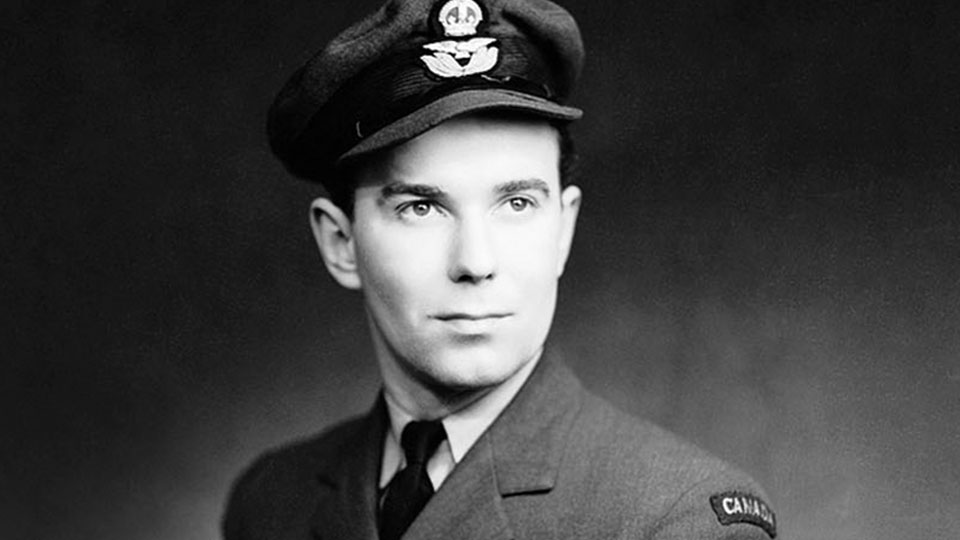
[charleyfox.com]
Charley Fox grew up in Guelph, Ont., and joined the Royal Canadian Air Force in the spring of 1940. He initially worked as a flight instructor and finally saw action in 1943 as a lieutenant with No. 412 Squadron, whose duties included bomber escort and dive-bombing, where they strafed enemy targets.
In the course of his two-year flying career, Fox personally destroyed or damaged 153 vehicles—many of them trains—and several enemy aircraft. Flying Spitfires, Fox was a deadly marksman. But dive-bombing the enemy came with risks; in 222 operational flights, the planes he flew were damaged 14 times from enemy ground fire, usually badly enough for them to be considered unusable. On D-Day—June 6, 1944—he flew three operational sorties over Normandy, protecting ships and men. In the course of his illustrious flying career, Fox received the Distinguished Flying Cross and Bar.
His most famous exploit happened in France on July 17, 1944, flying from the coastal Allied air base at Bény-sur-Mer.
“I saw this staff [car] coming along between a line of trees on a main road,” Fox recalled. “I did a diving curving attack and started firing at some 300 yards. I saw bullets hitting the car.”
What he didn’t know was that German Field Marshal Erwin Rommel—“the Desert Fox”—was in the car. Rommel had come to France to help prepare for the Allied invasion. A bullet wounded the driver and he drove the car off the road. Rommel was thrown out of the open car and hit a tree, fracturing his skull. Three months later, it was announced that Rommel died of his injuries.
This turned out not to be true. Rommel actually committed suicide. He was linked to a plot to assassinate Hitler, and when the plot was uncovered, the Gestapo rounded up more than 7,000 people, Rommel among them. They executed 4,980 of the prisoners. Because Rommel was a national hero, he was given the choice of a public trial that would certainly end in his execution, or committing suicide, leaving his war record intact. On Oct. 14, Rommel took a cyanide pill. The public was told he had died of his injuries from the car accident, and he was given a state funeral.
Fox’s tour of duty ended in January 1945. After the war, he remained in the RCAF, with No. 420 Air Reserve Squadron, retiring in 1956. In those years after the war, he didn’t talk much about what had happened overseas or his own heroic part in it. Few people knew that he was the man who’d taken Rommel out of the war. But in the last decade of his life, Fox re-embraced his military past. He founded Torch Bearers, a non-profit organization that educated youth about the Canadian military. He appeared in schools and lobbied school boards to make sure Remembrance Day ceremonies were held every November.
On Oct. 18, 2008, he was driving near Tillsonburg, Ont., when a driver ran a stop sign and collided with Fox’s car, killing him. He was 88 years old.
Advertisement


















